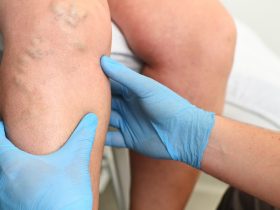The Friday, March 4, sessions of this year’s Miami Breast Cancer Conference opened with a “Coffee Talk” presentation on the topic of “Aligning the Data With Strategy to Improve Breast Cancer Outcomes With PARP, HER2/3, and TROP2.” Four speakers came together to present different facets of the topic: Debu Tripathy, MD, professor and chair of the Department of Breast Medical Oncology, Division of Cancer Medicine, at the University of Texas MD Anderson Cancer Center in Houston; Claudine Isaacs, MD, Professor of Medicine and Oncology at Georgetown University’s Lombardi Comprehensive Cancer Center in Washington, D.C.; Aditya Bardia, MD, Director of the Breast Cancer Research Program and an Associate Professor at Harvard Medical School; and Tiffany A Traina, MD, Associate Professor of Medicine, Weill Cornell Medicine.
In the objectives the four set out for the program, audience members were promised the opportunity to learn to . . .
- Assess the clinical profiles of PARP-, HER2/3-, and TROP2-targeted therapies in the context of their application for the treatment of breast cancer
- Translate practice-changing evidence on PARP-, HER2/3-, and TROP2-targeting therapeutic approaches into personalized care plans for patients with breast cancer
- Determine the rationale and molecular methods for genetic testing commensurate with optimized clinical decision-making in breast cancer management
- Implement strategies to monitor and manage toxicities associated with PARP-, HER2/3-, and TROP2-targeted agents and their use in breasts cancer treatment settings
Dr. Tripathy took the podium first, speaking on the topic of “Central Stage for Targeted Therapy in Breast Cancer: Rationale and Eligibility.” His detailed presentation included a review of the current state of decision-making complexity, actionable genomic aberrations in breast cancer, FDA-approved companion diagnostics, and cancer immunotherapies now in use of in clinical trials. He also touched on the promise of antibody-drug conjugates.
Dr. Isaacs spoke next. Her presentation was titled “Precision Medicine in Breast Cancer: Updates on PARP Inhibitors,” and included significant references to the OlympiA study, the BrighTNess trial, and BROCADE3. She concluded her portion of the program with these takeaway notes:
- Genetic and genomic testing impacts cancer treatment
- There are ongoing trials with a number of agents, including IO combinations, new DDR pathway
- Sequencing/choice of therapy should be placed in the context of other available treatments
Third of the four presenting physicians was Dr. Bardia, who spoke on “Recent Evidence and Clinical Implications for TROP2-Targeted Therapy.” He summarized his portion of the morning’s Coffee Talk with these points:
- Sacituzumab govitecan (SC) is the preferred treatment for pre-treated patients with metastatic TNBC (2nd line and beyond). Ongoing studies are evaluating SG in combination with targeted therapies and immunotherapy, as well as neo/adjuvant therapy in early breast cancer.
- Datopotamab deruxtecan (Dato-DxD) is another TROP2 ADC that has demonstrated impressive clinical activity in pretreated mTNBC. In addition, there are multiple targeted therapies in development to target key genomic pathways and antigens overexpressed in breast cancer.
- Determining resistance to antibody vs. payload could help with optimal therapeutic sequencing of ADCs for patients with breast cancer.
Finally, Dr. Traina presented the fourth topic of the session: “Targeting HER2, HER3, and HER2-low Breast Cancer.” She noted there are many new agents in HER2+ MBC and that standards of care are changing rapidly. Two studies that Dr. Traina called out as especially important in HER2+ MBC were DESTINY B-09 and HER2CLIMB-02. She summarized her presentation with these points:
- Taxane + trastuzumab/pertuzumab remains a 1st-line standard of care for HER2+ MBC
- Trastuzumab deruxtecan is the preferred 2nd-line treatment for HER2+ MBC
- Tucatinib + capecitabine/trastuzumab, T-DM1, and novel agents such as margetuximab, neratinib, and trastuzumab duocarmazine offer patients additional treatment options, although optimal sequencing is less clear.
Antibody-drug conjugates are transforming our approach to HER2+ breast cancer and beyond.





